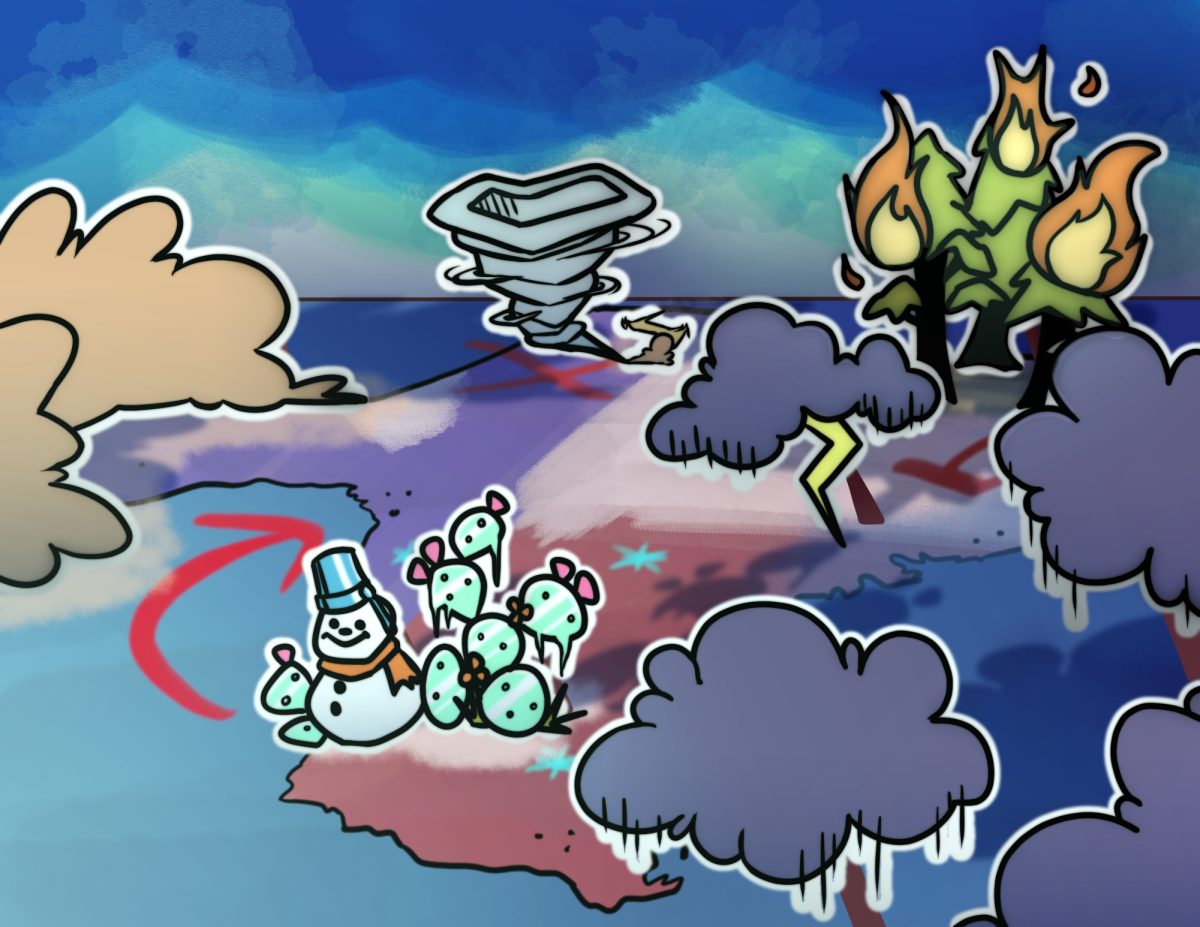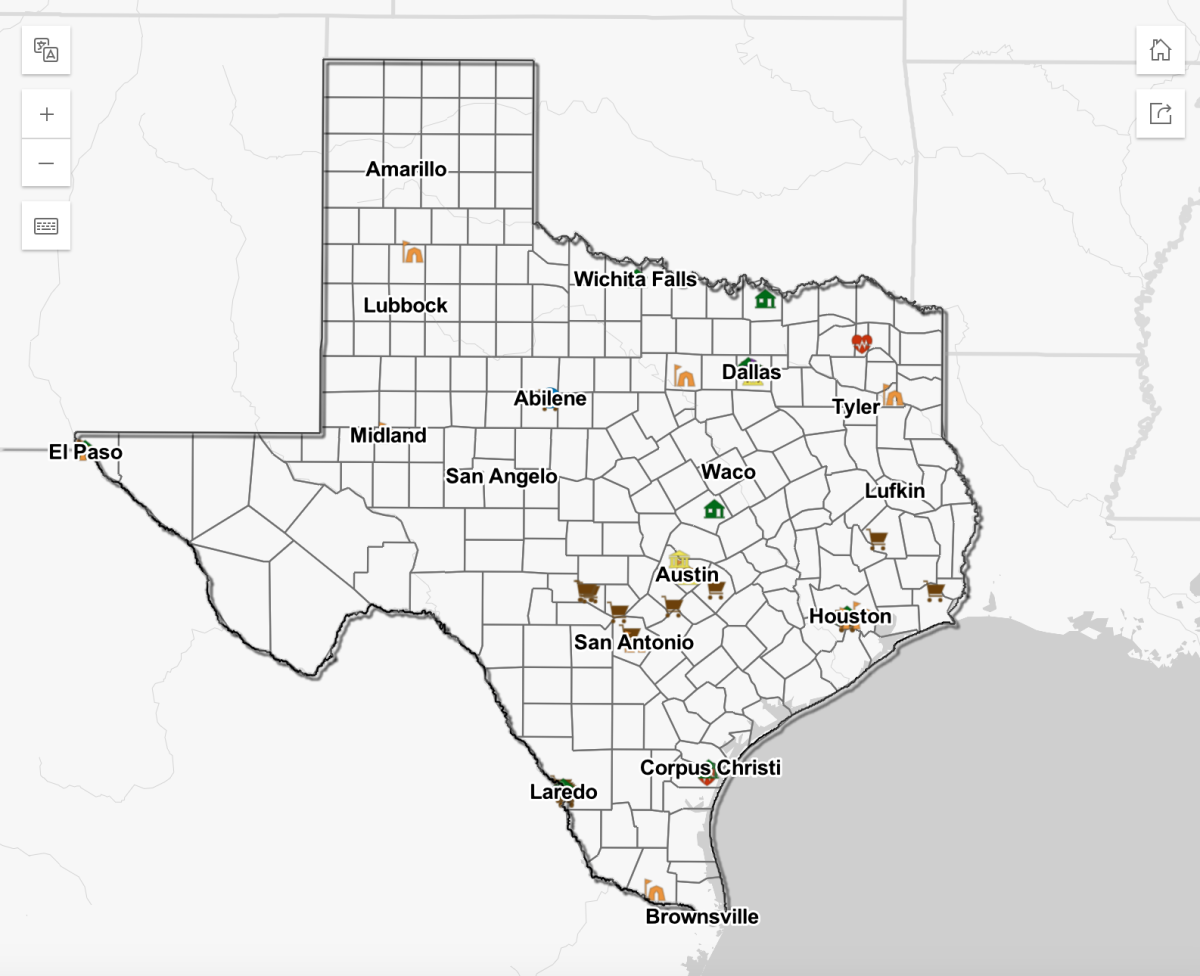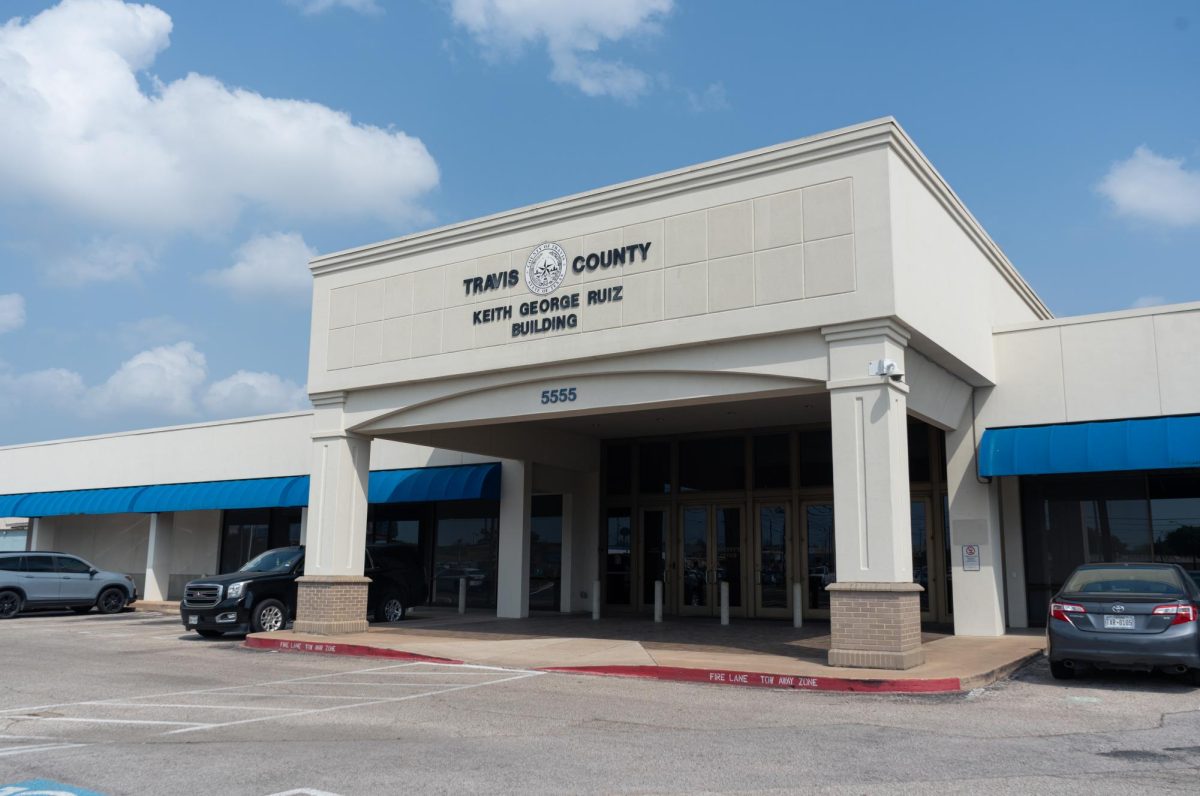A new lab hosted by UT’s LBJ School of Public Affairs will help officials across the state prepare for and analyze extreme weather events in Texas, according to a press release.
The Extreme Weather Adaptation Lab opened on Oct. 8 and will study extreme events like wildfires, droughts and tornados, particularly in rural communities with fewer resources. LBJ Dean JR DeShazo said the lab translates new climate science and policy into action.
“Among all the states in the United States, (Texas) has the most extreme weather, and it’s getting worse,” DeShazo said. “There have been really significant advances in the science behind forecasting extreme weather, and there have been advances in research around helping communities adapt to these different hazards that their communities are exposed to.”
According to the National Oceanic and Atmospheric Administration, Texas has experienced 187 confirmed weather-related events in the past four decades, with damages exceeding $1 billion. These events include 125 severe storms, 19 drought events, 15 tropical cyclone events, 11 winter storm events, nine flooding events, seven wildfire events and one freeze event.
Lab director Jacquie Moss said local governments need the resources to prepare for these events and determine the most cost-effective strategies to serve their communities’ needs. She said the lab aims to share the tools UT faculty have produced by creating a relationship between faculty and community leaders across Texas.
“We are hearing from local leaders how important they think this (lab) is,” Moss said. “(The lab) is something for which there’s a need, and where local governments feel like they need the support, they need the attention on their issues and they need to know where to look for help.”
The lab provides year-round training and research opportunities, such as an Adaptation Academy, which teaches participants to manage different weather hazards. DeShazo said students will be invited to help develop curriculum and educational materials for local officials.
“Students (may) be involved in some of the tool development to help forecast where extreme weather impacts are going to occur and who’s going to be vulnerable … as well as some of the research that will go on,” DeShazo said.
Troy Kimmel, a geography lecturer and incident response meteorologist, said he is proud of the LBJ school for looking at an issue that should have been examined long ago. He said the lab is very similar to his work in UT’s Office of Emergency Management because both prioritize the safety of faculty, students and visitors from extreme weather.
“We just have to take a look at this (extreme weather) and face it and build a more resilient place that can sustain itself,” Kimmel said. “That’s exactly what the program is there to do.”














